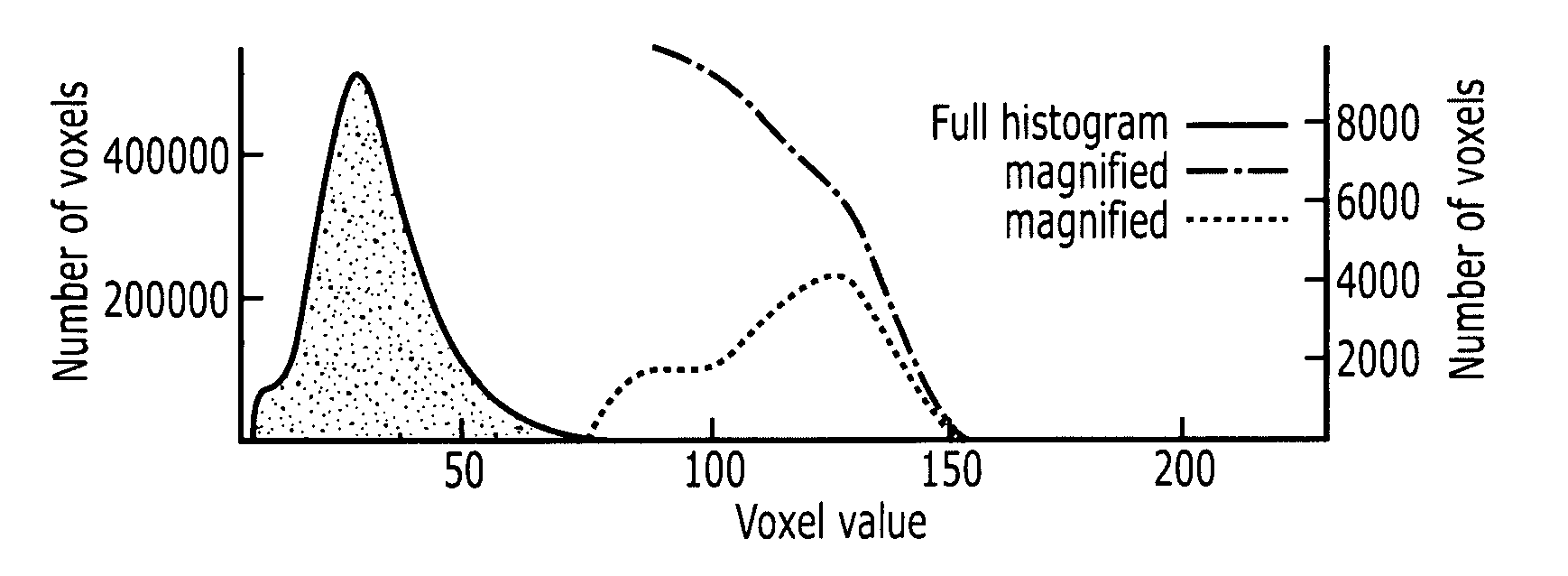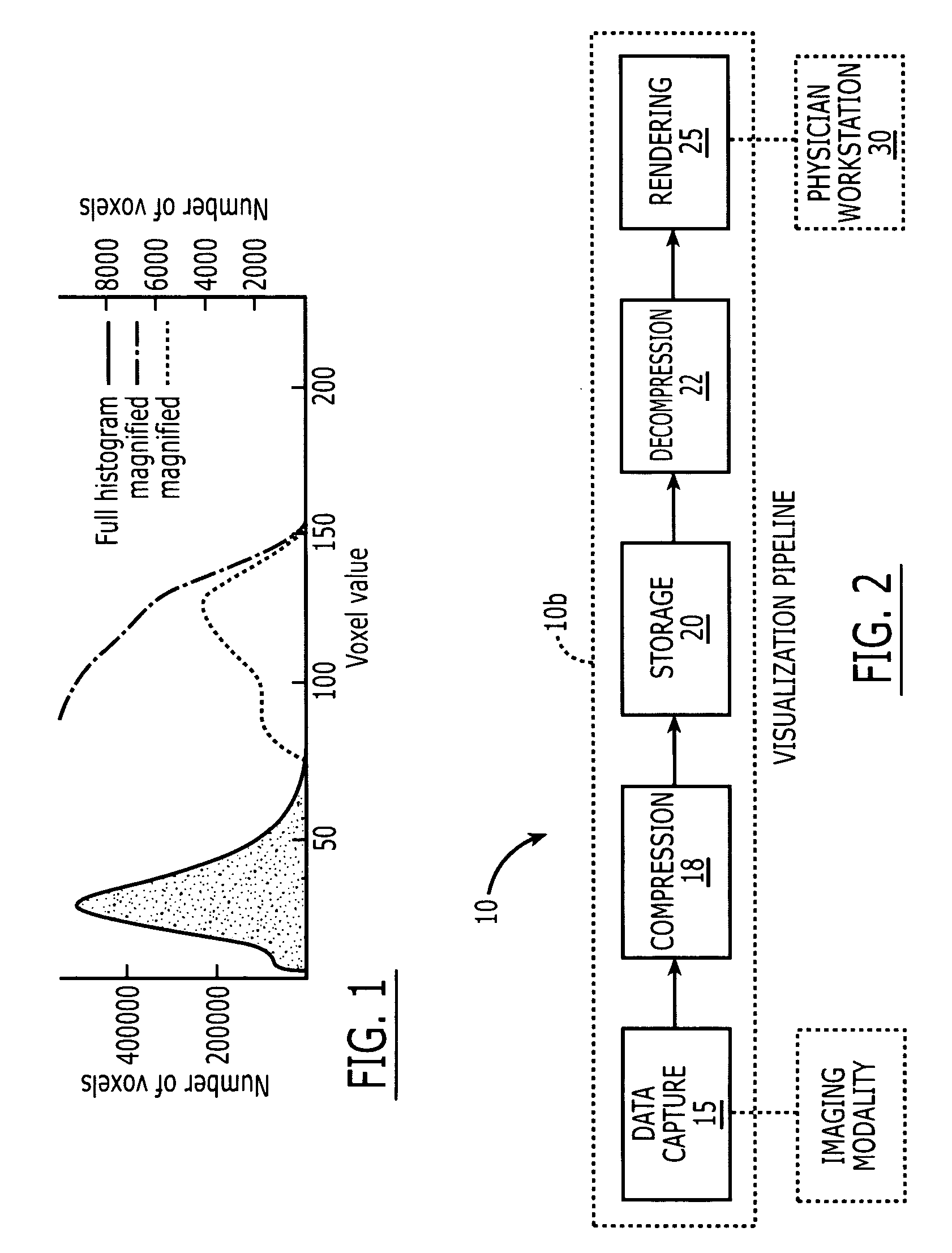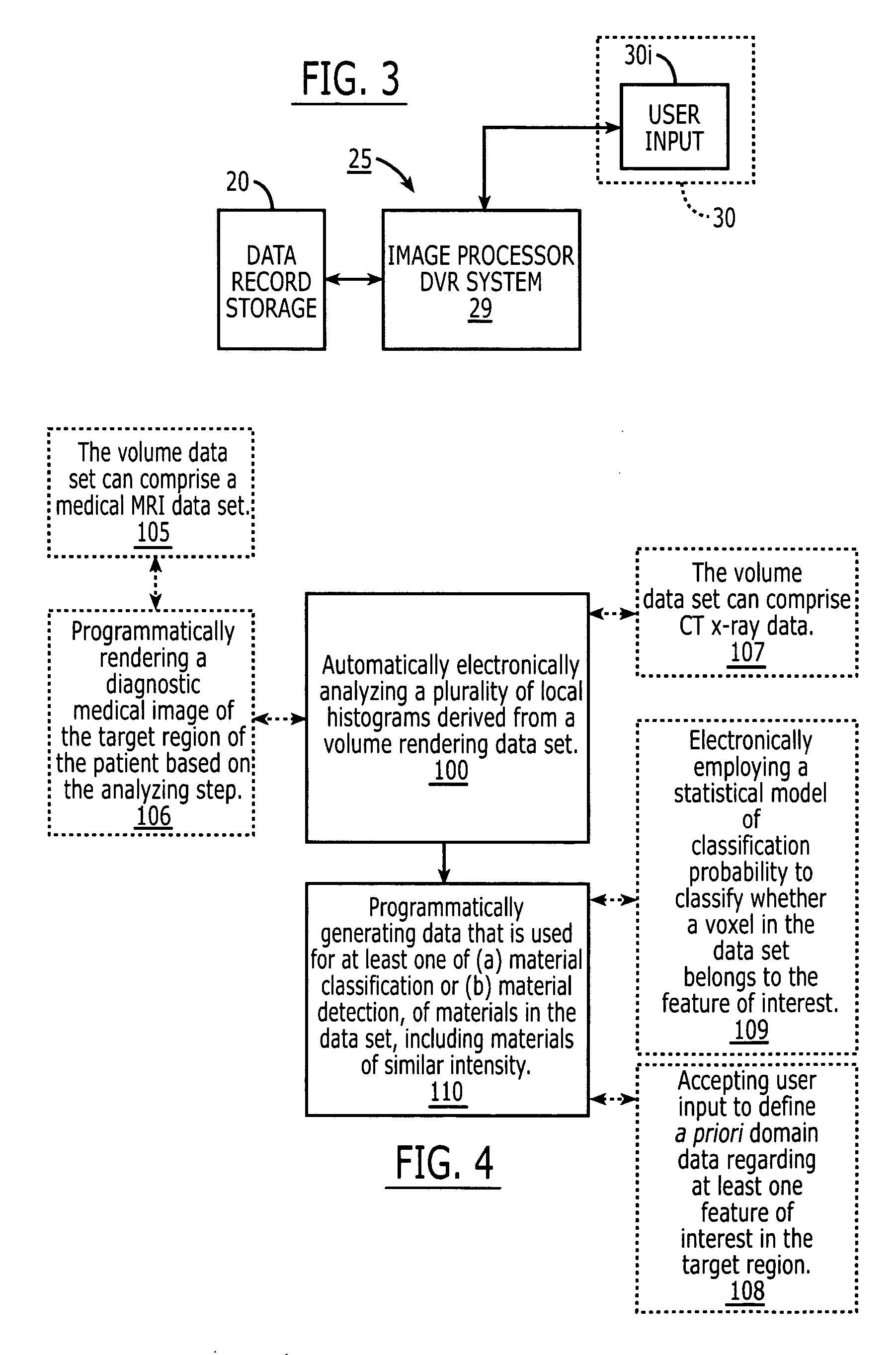Automated medical image visualization using volume rendering with local histograms
a volume rendering and medical image technology, applied in the field of medical image rendering of imaging data, can solve the problems of time-consuming manual adjustment of dvr using conventional transfer functions, unable to achieve widespread use of dvr for non-research medical imaging, and difficulty in slice-by-slice viewing of medical data
- Summary
- Abstract
- Description
- Claims
- Application Information
AI Technical Summary
Problems solved by technology
Method used
Image
Examples
example 1
Tissue Detection
[0130] The automatic tissue detection system as well as the 2D TF classification system has been tested on a number of data sets from actual clinical use at CMIV (“Center for Medical Image Science and Visualization,” Linkoping University, Sweden). Results of the automatic tissue detection confirmed that the correct peaks were defined by manual segmentation for each distinct tissue. Some peak detection results are presented in FIGS. 11A and 11B. It is noted that very large and very small peaks were left out of these figures for clarity. The tests resulted in a total number of between about 5-10 peaks for each data set.
[0131] The first data set evaluation shown in FIG. 11A is an MR examination of the biliary duct, where the automatic peak detection reveals multiple PRHs where the distinct tissues are the liver, kidney, spleen and tumor. The spleen and the tumor are treated as one tissue below, since their histograms fully coincide. A value of ε=0.5 was used. The auto...
example 2
Tissue Separation
[0133] The 2D TF approach described above has been tested on a CT pelvis angiography data set. The neighborhoods tested are of both voxel-centric spherical and double block type. The parameters of P were derived by manually probing the volume. Vessel voxels were characterized by neighborhoods with much soft tissue and little dense bone. The resulting renderings are shown in FIGS. 13A, 13B and 14A, 14B. The methods very well separate the two issues. The diagnostic value is enhanced since the vessels are not disturbed by red bone in the background. Even the difficult task of preserving thin vessels close to bone is successful. The fuzzy segmentation shows uncertain regions in pink, letting the user make the ultimate classification decision. The spherical neighborhood achieves a smooth classification. The double block approach yields faint speckle artifacts in the bone, but performs well in spite of its simplicity.
[0134] The separation can also be applied to identica...
example 3
Automatic Parameter Setting for Volume Rendering of MR Angiography
[0137] Automatically adjusted parameters for volume rendering (VR) of MR angiography (MRA) data sets were used to analyze contrast-enhanced three-dimensional MRA from 18 patients with abdominal aortic aneurysm (AAA). An automatic algorithm based on partial range histograms was designed to detect the intensity range of the contrast agent in each data set. Three cases were used to derive a relation between the detected range and the optimal VR parameters. The individualized automatic parameters were then applied to each of the remaining 15 patients' data sets. The aortic diameter was measured proximal and distal to the AAA by three independent radiologists. The results were compared to free manual adjustment of VR parameters. Digital subtraction angiography (DSA) was used as the gold standard.
[0138] Results of the aorta measurements for VR with the automatic parameters were significantly more precise than with free ma...
PUM
 Login to View More
Login to View More Abstract
Description
Claims
Application Information
 Login to View More
Login to View More - R&D
- Intellectual Property
- Life Sciences
- Materials
- Tech Scout
- Unparalleled Data Quality
- Higher Quality Content
- 60% Fewer Hallucinations
Browse by: Latest US Patents, China's latest patents, Technical Efficacy Thesaurus, Application Domain, Technology Topic, Popular Technical Reports.
© 2025 PatSnap. All rights reserved.Legal|Privacy policy|Modern Slavery Act Transparency Statement|Sitemap|About US| Contact US: help@patsnap.com



